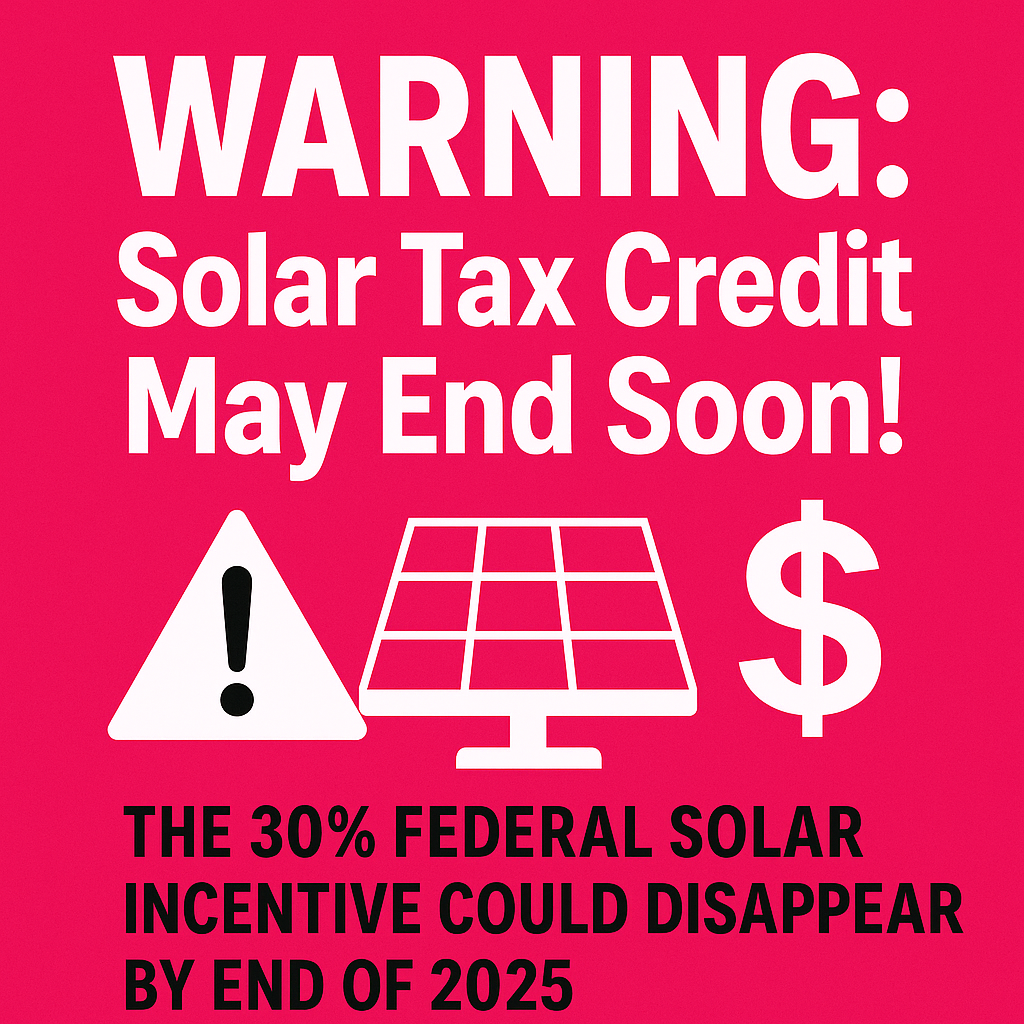If you’ve been considering switching to solar energy, now is the time to act. The federal 30% Residential Clean Energy Credit, a significant incentive for homeowners, is at risk of being eliminated by December 31, 2025, due to proposed legislation in Congress.
What’s Happening?
The House Ways and Means Committee has introduced a bill that would end the 30% solar tax credit for homeowners at the end of 2025, years earlier than its originally planned phase-out starting in 2033 . This credit, established under the Inflation Reduction Act (IRA), currently allows homeowners to deduct 30% of the cost of installing solar panels from their federal taxes.
Why the Urgency?
-
Potential Loss of Savings: If the credit is eliminated, homeowners could miss out on substantial tax savings. For example, a $30,000 solar installation could yield a $9,000 tax credit under the current program.
-
Increased Demand and Delays: As the deadline approaches, a surge in solar installations is expected, which could lead to longer wait times for consultations and installations.
-
Economic Impact: The proposed legislation could jeopardize nearly 300 solar and energy storage factories and eliminate approximately 292,000 jobs by 2030.
What Should You Do?
Schedule a Consultation: Contact a reputable solar installer to assess your home’s suitability for solar panels and to receive a quote.
Understand the Timeline: The process from consultation to installation can take several months. Starting now increases your chances of completing the installation before the potential expiration date.
Stay Informed: Keep up-to-date with legislative developments that may affect solar incentives.
Learn More
For additional information on the current state of solar tax credits and the potential changes, visit:
-
EnergySage: Congress threatens to kill the residential solar tax credit by year’s end
-
Solar.com: Trump and the Fate of the 30% Solar Tax Credit in 2025
Conclusion
The potential elimination of the 30% solar tax credit makes it imperative for homeowners to act swiftly. By initiating the process now, you can take advantage of the current incentives and contribute to a sustainable future.
Note: This information is based on current legislative proposals and may change. Consult with a tax professional for personalized advice.


